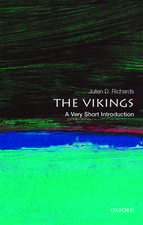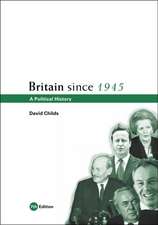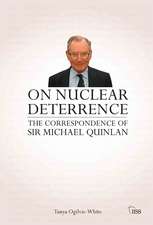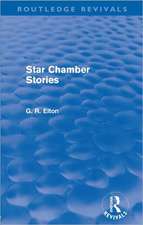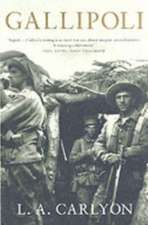Weimar Cities: The Challenge of Urban Modernity in Germany, 1919–1933: Routledge Studies in Modern European History
Autor John Binghamen Limba Engleză Paperback – 22 dec 2014
| Toate formatele și edițiile | Preț | Express |
|---|---|---|
| Paperback (1) | 276.30 lei 6-8 săpt. | |
| Taylor & Francis – 22 dec 2014 | 276.30 lei 6-8 săpt. | |
| Hardback (1) | 729.62 lei 6-8 săpt. | |
| Taylor & Francis – 31 iul 2007 | 729.62 lei 6-8 săpt. |
Din seria Routledge Studies in Modern European History
-
 Preț: 341.57 lei
Preț: 341.57 lei - 9%
 Preț: 934.96 lei
Preț: 934.96 lei -
 Preț: 324.89 lei
Preț: 324.89 lei -
 Preț: 288.81 lei
Preț: 288.81 lei -
 Preț: 311.41 lei
Preț: 311.41 lei -
 Preț: 350.13 lei
Preț: 350.13 lei - 9%
 Preț: 935.40 lei
Preț: 935.40 lei -
 Preț: 326.60 lei
Preț: 326.60 lei - 18%
 Preț: 1057.09 lei
Preț: 1057.09 lei - 18%
 Preț: 1124.39 lei
Preț: 1124.39 lei - 26%
 Preț: 846.50 lei
Preț: 846.50 lei -
 Preț: 367.27 lei
Preț: 367.27 lei - 18%
 Preț: 1056.28 lei
Preț: 1056.28 lei - 18%
 Preț: 1062.98 lei
Preț: 1062.98 lei - 28%
 Preț: 818.71 lei
Preț: 818.71 lei - 15%
 Preț: 461.03 lei
Preț: 461.03 lei -
 Preț: 430.37 lei
Preț: 430.37 lei - 18%
 Preț: 942.65 lei
Preț: 942.65 lei -
 Preț: 452.15 lei
Preț: 452.15 lei - 18%
 Preț: 1113.16 lei
Preț: 1113.16 lei - 31%
 Preț: 765.19 lei
Preț: 765.19 lei - 18%
 Preț: 1113.16 lei
Preț: 1113.16 lei - 31%
 Preț: 764.20 lei
Preț: 764.20 lei - 18%
 Preț: 1183.71 lei
Preț: 1183.71 lei - 18%
 Preț: 910.22 lei
Preț: 910.22 lei - 18%
 Preț: 1108.37 lei
Preț: 1108.37 lei - 18%
 Preț: 1113.16 lei
Preț: 1113.16 lei - 18%
 Preț: 1004.20 lei
Preț: 1004.20 lei - 18%
 Preț: 1055.51 lei
Preț: 1055.51 lei - 30%
 Preț: 826.43 lei
Preț: 826.43 lei -
 Preț: 485.46 lei
Preț: 485.46 lei - 18%
 Preț: 1112.21 lei
Preț: 1112.21 lei - 30%
 Preț: 796.11 lei
Preț: 796.11 lei - 18%
 Preț: 2219.12 lei
Preț: 2219.12 lei - 26%
 Preț: 822.36 lei
Preț: 822.36 lei - 18%
 Preț: 1057.75 lei
Preț: 1057.75 lei - 31%
 Preț: 736.38 lei
Preț: 736.38 lei - 18%
 Preț: 1066.09 lei
Preț: 1066.09 lei - 31%
 Preț: 764.20 lei
Preț: 764.20 lei - 18%
 Preț: 1058.65 lei
Preț: 1058.65 lei -
 Preț: 436.95 lei
Preț: 436.95 lei -
 Preț: 442.12 lei
Preț: 442.12 lei - 18%
 Preț: 703.93 lei
Preț: 703.93 lei - 18%
 Preț: 1116.27 lei
Preț: 1116.27 lei
Preț: 276.30 lei
Nou
Puncte Express: 414
Preț estimativ în valută:
52.88€ • 55.00$ • 43.65£
52.88€ • 55.00$ • 43.65£
Carte tipărită la comandă
Livrare economică 14-28 aprilie
Preluare comenzi: 021 569.72.76
Specificații
ISBN-13: 9780415762502
ISBN-10: 0415762502
Pagini: 184
Dimensiuni: 152 x 229 x 13 mm
Greutate: 0.26 kg
Ediția:1
Editura: Taylor & Francis
Colecția Routledge
Seria Routledge Studies in Modern European History
Locul publicării:Oxford, United Kingdom
ISBN-10: 0415762502
Pagini: 184
Dimensiuni: 152 x 229 x 13 mm
Greutate: 0.26 kg
Ediția:1
Editura: Taylor & Francis
Colecția Routledge
Seria Routledge Studies in Modern European History
Locul publicării:Oxford, United Kingdom
Cuprins
Introduction: Locating Cities and Modernity in Weimar 1. Center and Periphery: Cities in Germany, 1900-1933 2. The Congress of Cities 3. The Urban Spectrum 4. Experiment: Urban Modernity and the "Great Reform" of 1929 5. A Nation of City Republics: The Urban Bases of Reichsreform Conclusion: Vulnerable Cities
Notă biografică
Weimar Cities explores Germans’ efforts after the First World War to come to grips with their great cities and, by extension, measures the feasibility of the postwar experiment that was the Weimar Republic.
Descriere
Weimar Cities explores Germans’ efforts after the First World War to come to grips with their great cities and, by extension, measures the feasibility of the postwar experiment that was the Weimar Republic.




